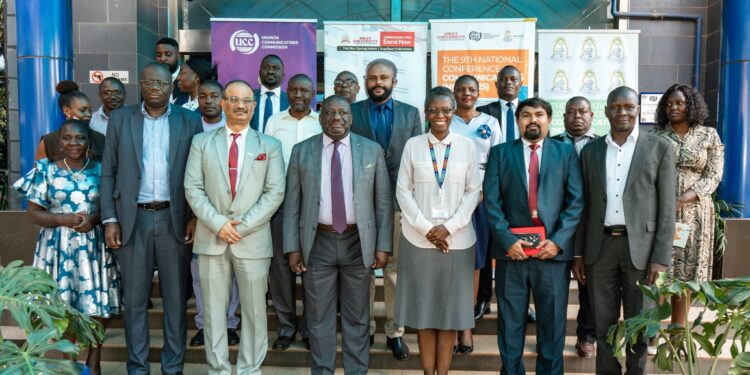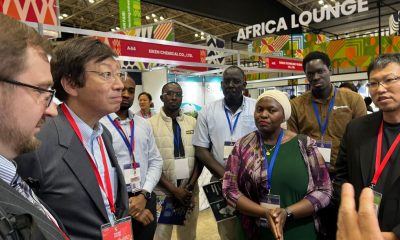Tech and Communication
UCC Calls for Homegrown ICT Innovation to Drive Uganda’s Development Goals
The Uganda Communications Commission (UCC) has underscored the urgent need for homegrown digital solutions to address Uganda’s development challenges. Speaking at the official launch of the 9th National Conference on Communications (NCC) on Friday, UCC Executive Director George William Nyombi Thembo said that local innovation must take center stage if the country is to achieve inclusive and sustainable development.
Scheduled to take place on October 2–3, 2025, the upcoming conference will be jointly hosted by ISBAT University and Gulu University under the theme, “Harnessing Digital Innovation to Power Sustainable Local Solutions for Uganda’s Development Goals.”
“As scientists, researchers, academics and innovators, we must remain focused on generating solutions to the complex problems facing our society,” Thembo said. “Whether through disruptive technologies or progressive policies, research remains the backbone of successful digital transformation.”
Thembo reaffirmed UCC’s commitment to building a digitally inclusive economy, noting that the Commission will continue to work closely with academic institutions, the private sector, and government bodies to ensure the benefits of digital innovation reach every Ugandan.
Established in 2011, the National Conference on Communications is UCC’s flagship platform for promoting innovation, research, and capacity-building in the ICT sector. It brings together academia, government, industry leaders, and students to share peer-reviewed research, showcase indigenous ICT innovations, and stimulate policy dialogue.
This year’s edition will significantly expand its grassroots engagement, with participation from over 200 ICT clubs from secondary schools—a notable increase from 120 in 2023. These clubs will take part in national and regional innovation competitions, presenting digital solutions aimed at solving real-life challenges in their communities.
Beyond traditional academic presentations and panel discussions, the 9th NCC will introduce new capacity-building activities such as hackathons, publishing masterclasses, and the formation of academic writing clubs to strengthen ICT research and innovation output across Ugandan institutions.
As part of efforts to continuously improve its impact, the UCC is also undertaking a comprehensive evaluation of the NCC program to assess its contribution to Uganda’s ICT innovation ecosystem. The findings will guide future editions of the conference and help define strategic focus areas that align with national development priorities.
Thembo emphasized that the NCC is not merely a conference, but a platform for national transformation. “We invite all stakeholders—academics, innovators, policymakers, development partners, and media—to actively participate. Through collective effort, we can shape a future where homegrown digital innovation fuels Uganda’s progress.”
With ICT continuing to evolve as a key pillar of socio-economic transformation, the 9th NCC is expected to catalyze fresh momentum toward a future where Ugandan solutions solve Ugandan problems.
Comments



























